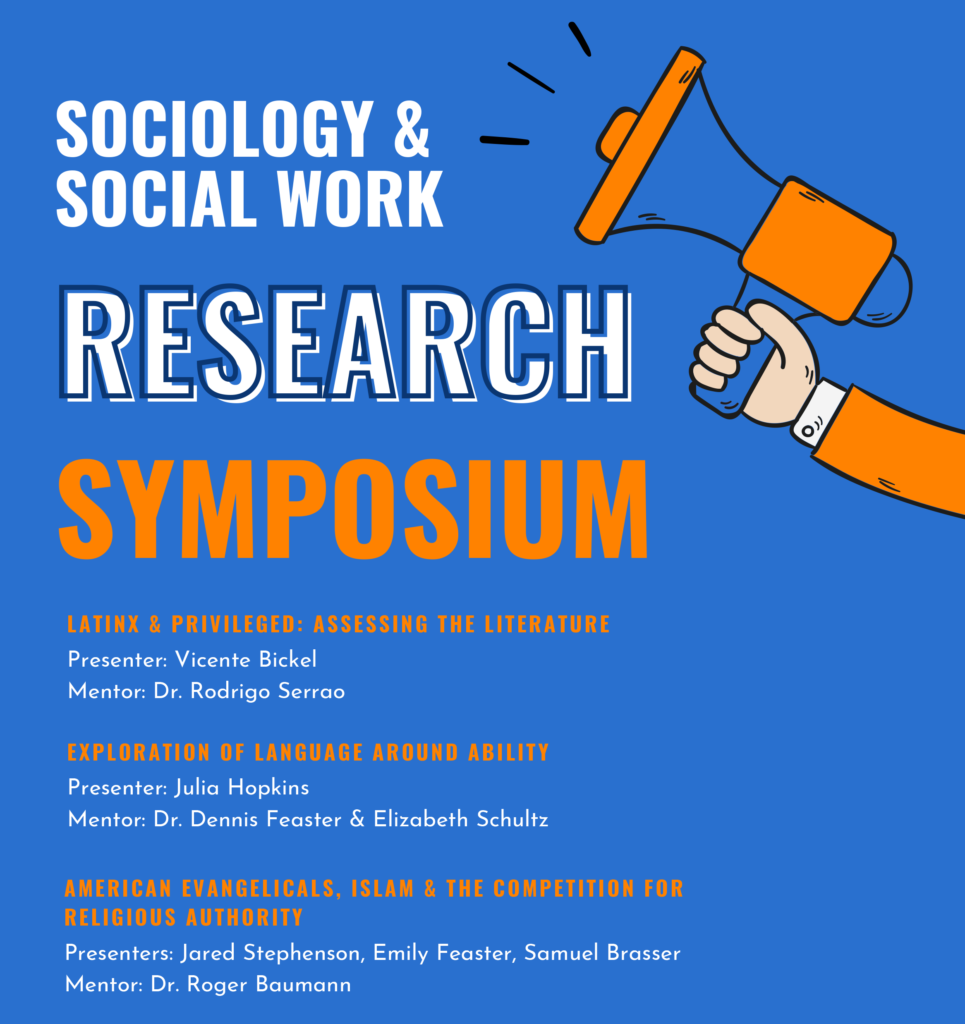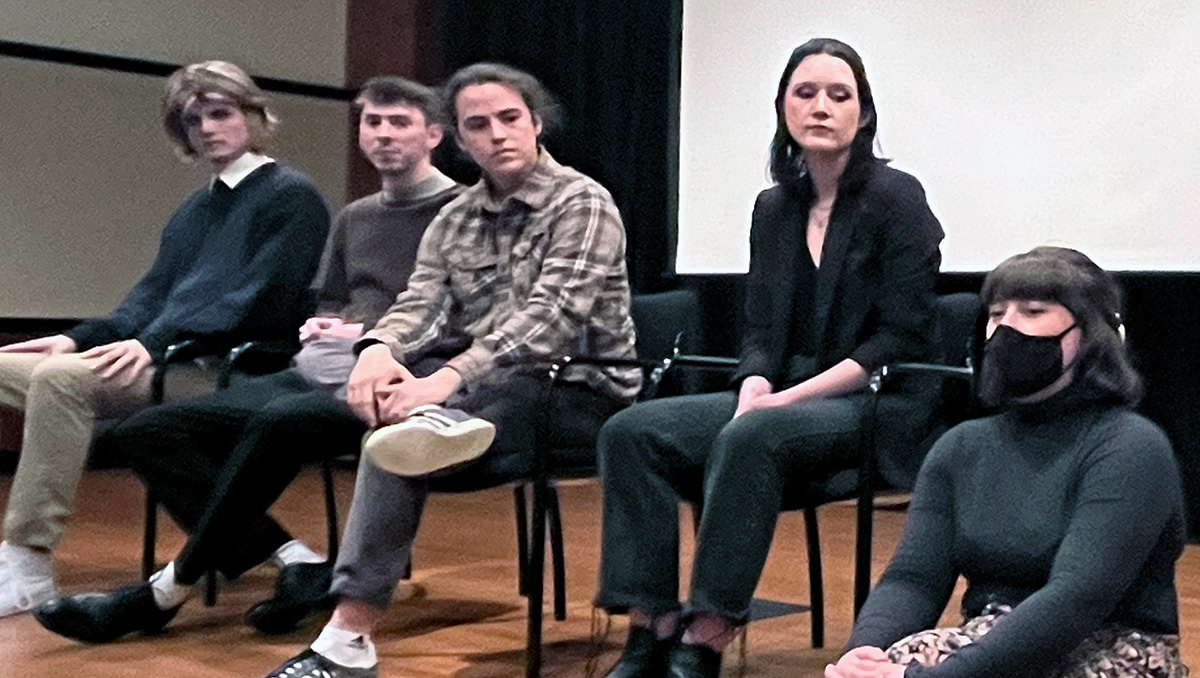On March 29th, the Sociology & Social Work Department hosted a research symposium, where five undergraduate researchers presented on collaborative work done with department faculty throughout the academic year and the preceding summer.

Collaborative faculty-student research is a hallmark of a liberal arts education at Hope College, equipping students with skills and experience that will serve them in a range of academic, professional, and personal pursuits. The Sociology & Social Work Department provides opportunities for student researchers every year, with supporting funds from within the department, from external grants, and from Hope College donors through the Jacob E. Nyenhuis faculty development grant program, among others programs.
This year’s research symposium featured the work of five students on three different faculty-led research projects.
Vincente Bickel gave a presentation entitled, “Latinx & Privileged: Assessing the Literature,” based on research with Dr. Rodrigo Serrao. The projects examines intersections of Latinx identity with other racial and ethnic constructions in the context of racism and xenophobia. Paying attention to the nuances of Latinx identity in relation to whiteness, social acceptability, and privilege, Vincente summarized key themes in the academic literature on Latinos in the United States through the lenses of race and racism. This included attention to processes of racialization and questions of who gets to define groups using racial categories, patterns of immigration and related moral panics, and issues of colorism with an emphasis on social stratification by skin color.
Julia Hopkins presented on the “Exploration of Language Around Ability,” stemming from a collaborative research project supervised by Dr. Denis Feaster and including Elizabeth Schultz. The project analyzes the tension between “person first” language and “identity first” language in reference to ability (e.g., “person with a disability” vs. “disabled person”). Julia discussed what factors affect a person’s preferences around language and ability and why this distinction matters. Through an analysis of qualitative interviews, Julia and her research partners help explain how people make meaning in their lives with respect to the salience of ability in personal and group identities.
Samuel Brasser, Emily Feaster, and Jared Stephenson presented together on the topic of “American Evangelicals, Islam & the Competition for Religious Authority,” a collaborative team project led by Dr. Roger Baumann, focused on American evangelical Christian discourse on Islam and Muslims. The project is based on an ongoing qualitative content analysis of over 200 evangelical books on Islam spanning more than five decades. The presenters summarized the religious, political, and social significance of American evangelical struggles over the authority to define Islam and Muslims. Further, the presentation focused on how, through examining these texts, we can appreciate how evangelical Christian institutions, discourses, and practices relate to knowledge production about Islam and Muslim that takes shape in the religiously, ethnically, and racially diverse American public sphere.
The colloquium also included a question period, where each of the researchers had the opportunity to reflect and share about their own personal trajectories within the research projects they have been working on. Informal conversations continued in a reception, where the department celebrated the success of its student researchers this year.


